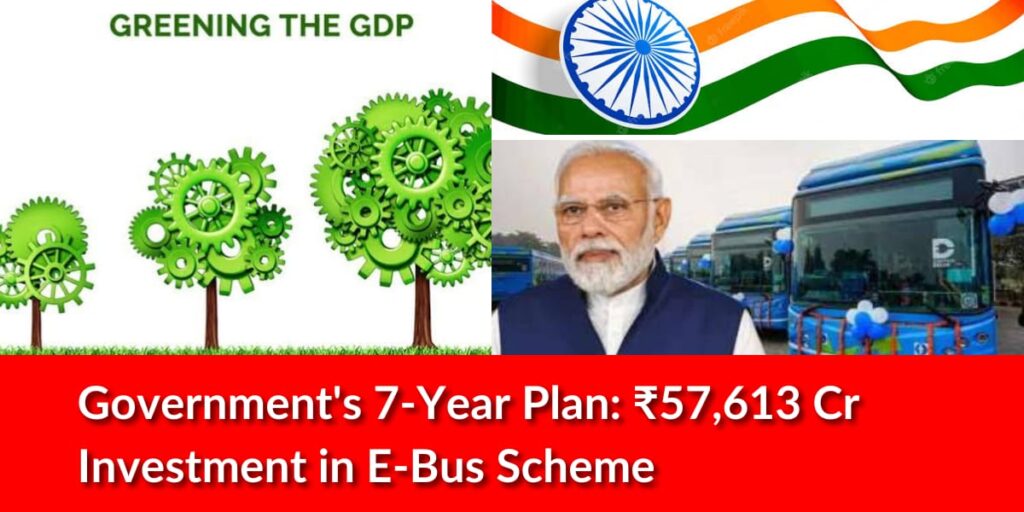In New Delhi, the national government won’t put in the entire ₹57,613 crore at once for the PM-eBus Sewa plan. Instead, they’ll spread it out over seven years and provide funding based on how far these 10,000 e-buses travel, calculated on a per-kilometer basis. This information comes from two individuals who are well-informed about the situation, as reported by Mint.

Table of Contents
Funding Strategy
“The central government plans to pay for the buses on a per-kilometer basis, instead of making an initial investment,” said an unnamed senior government official. “Private companies will run these buses, and any additional funding needed by the state government will be covered by the central government,” the source further explained.
Scheme Approval
Last month, the Cabinet gave its approval to the PM-eBus Sewa scheme, a partnership between the government and private companies. Under this plan, a total of ₹57,613 crore will be allocated, with the government contributing ₹20,000 crore.
Expansion of Electric Buses
In a 10-year plan to improve city bus services, 10,000 electric buses will be introduced across 169 cities. The focus will be on cities that currently lack well-organized bus services. The central government anticipates that this initiative will create 45,000 to 55,000 new jobs directly.
Key Objectives
The primary goals of this plan include promoting eco-friendly measures such as prioritizing buses on the road, enhancing infrastructure, facilitating seamless transfers between different modes of transportation, implementing automated fare collection systems based on the National Common Mobility Card (NCMC), setting up charging stations, and collaborating with the private sector to achieve these objectives.
State Involvement
In this plan, states handle running the bus services and paying the bus operators. The central government will help these bus operations by giving subsidies.
Budgetary Considerations
The cost of the PM-eBus Sewa scheme will be covered within the budget plan for the 2024 fiscal year, as mentioned by the individual.
“But, these expenses won’t affect this year’s fiscal deficit figures because it’s a long-term plan that needs funding from the central government over time,” the individual explained. The allotments to states for this program will be determined in the revised estimates in October-November,” the individual further stated.
Ministry’s Response
A spokesperson from the finance ministry did not reply to our questions.
City Eligibility
The PM e-Bus Sewa plan will include cities with a population ranging from 300,000 to four million, as per the 2011 Census data. A total of 169 cities are qualified to request electric buses through this initiative.
Exclusions
After the Cabinet approved the PM e-Bus Sewa scheme last month, Manoj Joshi, the secretary of the Ministry of Housing and Urban Affairs (MoUHA), mentioned that the total cities benefiting from this initiative would be determined by the number of cities that express interest in participating.
He mentioned that the plan won’t apply to the nine largest cities in India, those with over four million people. These cities are already part of the Faster Adoption and Manufacturing of Electric Vehicles (FAME) program managed by the Ministry of Heavy Industries.